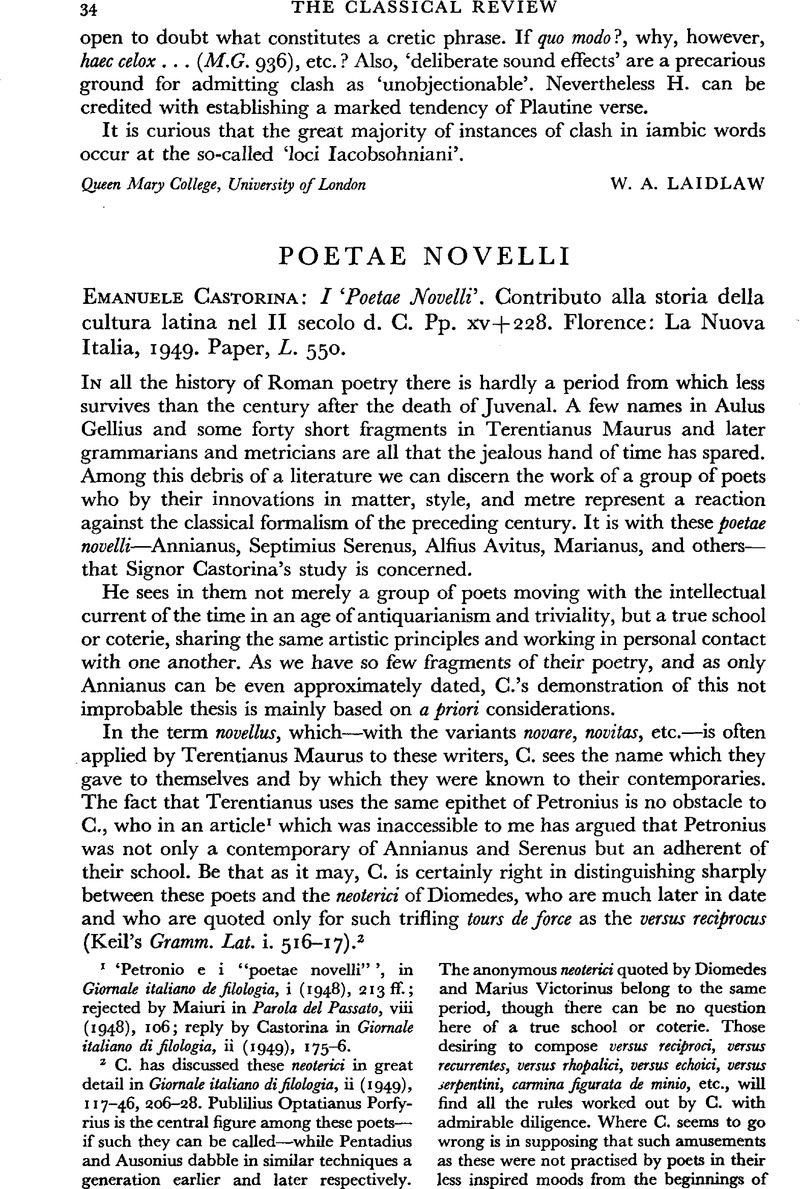No CrossRef data available.
Article contents
Poetae Novelli - Emanuele Castorina: I ‘Poetae Novell’. Contributo alla storia della cultura latina nel II secolo d. C. Pp. xv+228. Florence: La Nuova Italia, 1949. Paper, L. 550.
Published online by Cambridge University Press: 13 February 2009
Abstract

- Type
- Reviews
- Information
- Copyright
- Copyright © The Classical Association 1951
References
1 ‘Petronio e i “poetae novelli”’, in Giornale italiano de filologia, i (1948), 213 ff.; rejected by Maiuri in Parola del Passato, viii (1948), 106; reply by Castorina in Giornale italiano di filologia, ii (1949), 175–6.
2 C. has discussed these neoterici in great detail in Giornale italiano di filologia, ii (1949), 117–46, 206–28. Publilius Optatianus Porfyrius is the central figure among these poets— if such they can be called—while Pentadius and Ausonius dabble in similar techniques a generation earlier and later respectively. The anonymous neoterici quoted by Diomedes and Marius Victorinus belong to the same period, though there can be no question here of a true school or coterie. Those desiring to compose versus reciproci, versus recurrentes, versus rhopalici, versus echoici, versus serpentini, carmina figurata de minio, etc., will find all the rules worked out by C. with admirable diligence. Where C. seems to go wrong is in supposing that such amusements as these were not practised by poets in their less inspired moods from the beginnings of Latin literature, just as they went on being practised until the age of Charlemagne and beyond. Quintilian ix. 4. 90 knows of an ignobilis poeta who wrote versus reciproci. What preserved the nugae of Porfyrius, while those of others were mercifully lost, was first, his own unbelievable ingenuity and deadly seriousness, and second, the patronage of Constantine.




